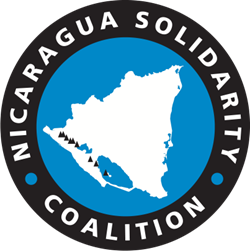Rubén Darío: Anti-colonialist and Anti-imperialist
Rubén Darío: Anti-colonialist and Anti-imperialist
By Jeremy Cerna
Modernism is, in itself, an aesthetic renewal of language, with its cosmopolitan rebellion and its strong anti-colonialist and anti-imperialist current.
Literature by Ruben Dario is essentially political, its text and context are emancipatory weapons to denounce the arbitrariness of the ruling classes.
In 1892 Rubén Darío visited Spain to commemorate the four hundred years of the conquest of America. Darío does not go unnoticed since he causes a sensation when reading his poem "A Colón" to the Spanish court. Below is an excerpt (whole poem here):
Unfortunate admiral! Your poor America,
your beautiful, hot-blooded, virgin Indian love,
the pearl of your dreams, is now hysterical,
her nerves convulsing and her forehead pale.
A most disastrous spirit rules your land:
where once the tribesmen raised their clubs together,
now there is endless warfare between brothers,
the selfsame races wound and destroy each other.
The stone idol is gone, and in its place
a living idol sits upon a throne,
while every day the pallid dawn reveals
the blood and ashes in the fields of neighbors.
The direct language chosen by Darío together with the metaphors sculpt the portrait of the greed, ignominy and wickedness with which the conquest was forged. This poem is a masterful work of unequivocal reality, an anti-colonialist denunciation in all its splendor.
Darío's anti-imperialism is exposed, for example, in the "Ode to Roosevelt" and in the essay "The Triumph of Caliban." Comrade Ramon Campos of Cuaderno Sandinista makes an accurate description of the origin of the essay and presents an excerpt from it, mentioning that Darío wrote it in 1898 "motivated by the imperialist intervention in Cuba, which prevented the triumph of the Cuban patriots (mambises) and humiliated the decadent Spanish empire militarily and politically."
No, I can't, I don't want to be on the side of those silver-toothed buffaloes. They are my enemies, they are haters of Latin blood, they are the Barbarians. Thus every noble heart trembles today, so every noble heart protests today, so every worthy man who preserves something of the she-wolf's milk protests today.
[…]
But there are those who say: "Don't you see that they are the strongest? Do you not know that by fatal law we must perish swallowed or crushed by the colossus? Yes, how can I not see the mountain that forms the back of the mammoth? But first Darwin and Spencer I am not going to put my head on the stone so that the great Beast crushes my skull.
[…]
Behemoth is gigantic; but I must not sacrifice myself of my own free will under its paws, and if it succeeds in catching me, at least my tongue must finish giving its last curse, with the last breath of life...
[…]
While it is true that Rubén Darío's genius allowed him to be recognized as the father of modernism, his humility and recognition before other authors of equal literary stature and existential pragmatism is also known, such as the case of the Cuban revolutionary José Martí, whom Darío would describe as having great patriotic and revolutionary values, as well as high moral and aesthetic value.
Darío is the reflection of our ancestral feeling and our forced miscegenation. Darío is reflected in every heroic act of our General Sandino, defeating the imperialist invader, of Rigoberto López Pérez, executing the tyrant. Darío is present in the insurrectionary literature of Leonel Rugama, Arlen Siu, etc. Rubén Darío is a lifelong presence in the Sandinista Popular Revolution, in the Latin American and Caribbean revolution, he is poetry in action. Darío's validity is the art of fighting and living in peace and freedom.


